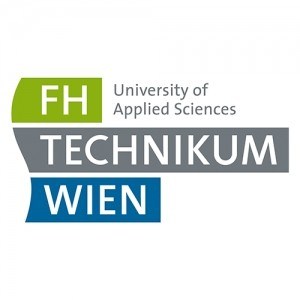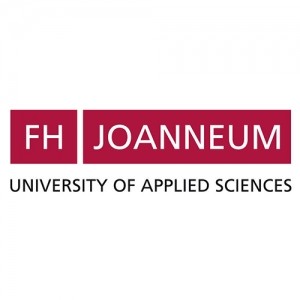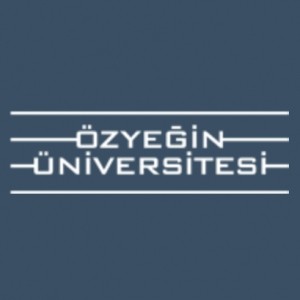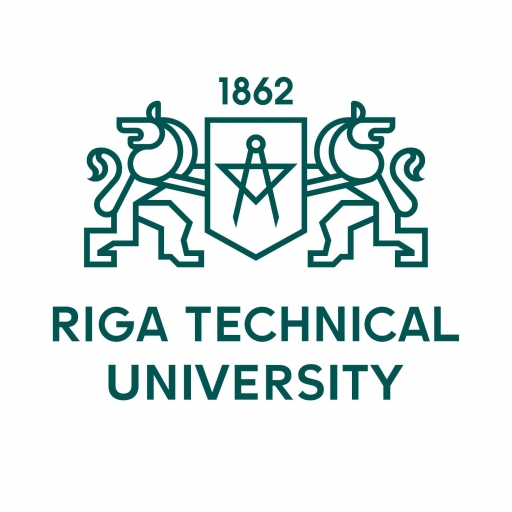Photos of university / #technikum_wien
Advertisement
Technology is networking.
The performance of transport systems is of crucial importance for individual mobility, commerce and for the welfare and economic growth of all nations. There are, however, considerable problems to be overcome which can be addressed through the use of Intelligent Transport Systems. The field of Intelligent Transport Systems (ITS) is concerned with the procedures, systems and devices which can enhance transport and mobility of passengers and freight through collection, communication, analysis and distribution of information. In order to design and operate complex and intermodal ITS detailed knowledge in a number of different disciplines is required.
Challenges in transport
The European Master of Science in Intelligent Transport Systems is offered either as a multiple degree program (with two or three nationally recognized degrees depending on the students individual mobility track) or as a single degree program. Students have to choose after their first semester their preferred study-paths according to the specializations offered. The final assignment of study paths is made by the consortium (UASTW, CTU, LiU) based on performance and availability. For acquiring a double degree students have to change university after stage 1 or 2. For acquiring a multiple degree students have to change university after stage 1 and have to move to a third university after stage 2.
The Bachelor's Degree Program in Intelligent Transport Systems at the University of Applied Sciences Technikum Wien offers a comprehensive and forward-looking education designed to prepare students for the rapidly evolving field of smart transportation. This interdisciplinary program combines elements of electrical engineering, computer science, transportation logistics, and information technology to equip graduates with the knowledge and skills necessary to develop, implement, and manage innovative solutions in transport infrastructure and mobility services. Throughout the course of study, students explore key topics such as vehicle communication systems, traffic management, sensor technologies, data analytics, and automation. The curriculum emphasizes practical application and industry relevance, including project-based coursework, internships, and collaborations with leading technology companies and transport organizations. Students learn about the design and development of Intelligent Transport Systems (ITS) that enhance safety, efficiency, and sustainability in urban and rural mobility environments. Special focus areas include sensor networks, embedded systems, IoT applications, machine learning, and data security in transportation contexts. The program also addresses policy considerations, regulatory frameworks, and ethical issues related to smart mobility solutions. By engaging in hands-on laboratories and real-world projects, students gain valuable experience in coding, system integration, and system testing. Graduates of this program are well-prepared for careers as transportation planners, ITS engineers, systems developers, or project managers in the transportation sector. They will be ready to contribute to innovative projects that improve traffic flow, reduce congestion, and promote environmentally friendly transportation options. The program aims to develop critical thinking, problem-solving abilities, and technical expertise, ensuring that graduates meet the demands of a dynamic and sustainable transport industry. With a strong emphasis on teamwork and communication skills, students are also prepared to work effectively in multidisciplinary teams and communicate complex technical concepts to diverse audiences. Overall, the Bachelor's Degree in Intelligent Transport Systems at Technikum Wien offers a valuable pathway into a growing sector critical for shaping the future of mobility and urban development.
Program requirements for the Bachelor’s degree in Intelligent Transport Systems at the University of Applied Sciences Technikum Wien include a solid grounding in fundamental engineering and technological principles, as well as specialized knowledge in transportation infrastructure, vehicle systems, and digital technologies. Applicants are typically required to have completed secondary education with strong performance in mathematics, physics, and information technology. Proficiency in English is essential, as the program is conducted in English, and applicants must provide proof of language skills through standardized tests such as TOEFL or IELTS unless they have completed previous education in English.
Additionally, applicants should demonstrate an interest in smart mobility, transportation management, and innovative vehicle technologies. Previous experience or coursework related to automation, data analysis, or programming can be advantageous. A motivation letter describing the applicant’s interest in intelligent transportation and career goals is often necessary as part of the application process. Some prerequisites may include basic knowledge of computer programming, systems engineering, and electronics, which can be acquired through prior coursework or self-study.
The program emphasizes interdisciplinary learning, so applicants with a background in electrical engineering, mechanical engineering, or computer science are encouraged to apply. The university values applicants with strong analytical skills, problem-solving abilities, and an innovative mindset. While specific minimum grade requirements are not publicly detailed, competitive applicants typically have high academic achievement and relevant extracurricular activities or internships related to transportation or technology. International students should also review visa requirements and provide necessary documentation to demonstrate eligibility for study in Austria. Perfect command of the prerequisites ensures successful progression through the curriculum and aligns with the program’s goal to prepare graduates for careers in the evolving field of intelligent mobility and transportation solutions.
The Intelligent Transport Systems program at the University of Applied Sciences Technikum Wien offers various financing options for both domestic and international students. Tuition fees are structured to support a diverse student body and are generally designed to be affordable relative to comparable programmes in Europe. For Austrian and EU/EEA students, the regular tuition fee is approximately €385 per semester, which includes access to state-of-the-art facilities, laboratories, and teaching resources. Non-EU international students may be subject to different fee structures, which can be higher; specific details are available upon application.
Students are encouraged to explore scholarships that are available through the university, including merit-based scholarships for outstanding academic performance, fee waivers, and financial aid packages tailored for students demonstrating financial need. The university also collaborates with various external organizations and industry partners to provide internship stipends and sponsorship opportunities that can offset study costs. Additionally, students may consider state support programs such as student loans or grants provided by Austrian government bodies, which are designed to make higher education accessible and affordable.
Part-time employment is another viable means of financing studies, and the University of Applied Sciences Technikum Wien supports students in finding part-time work opportunities within the university or in nearby industries linked to transport and logistics sectors. Furthermore, many students take advantage of university-organized career fairs and partnerships with businesses that offer student internships, which may include stipends or paid positions that contribute to overall financing.
International students should also investigate scholarships, grants, or financial aid offered by their home countries, as well as possible funding from governmental or private organizations dedicated to supporting international education. The university provides comprehensive guidance and counseling on financial planning and scholarship applications through its student services and international office.
Overall, financing a study program in Intelligent Transport Systems at Technikum Wien is facilitated through a combination of tuition fees, scholarships, financial aid, employment opportunities, and external funding sources, ensuring a broad range of options to accommodate differing financial situations and to make higher education in this innovative field more accessible.
The Bachelor's degree program in Intelligent Transport Systems at the University of Applied Sciences Technikum Wien is designed to equip students with the technical knowledge and practical skills necessary to develop, manage, and optimize modern transportation systems. This multidisciplinary program combines principles from engineering, information technology, and transportation management to create innovative solutions for current and future mobility challenges. Students will gain a thorough understanding of the core components of Intelligent Transport Systems (ITS), including vehicle and infrastructure communication, traffic management systems, data analysis, and automation technologies. The curriculum emphasizes digitalization, sensor technologies, network communications, and data security, reflecting the latest trends and innovations in the mobility sector.
Throughout the program, students engage in hands-on projects, laboratory work, and internships that enable them to apply theoretical knowledge to real-world transportation problems. They explore topics such as traffic flow optimization, connected vehicles, autonomous transport, and sustainable mobility solutions. The program also fosters interdisciplinary teamwork, communication, and problem-solving skills, which are essential for careers in the rapidly evolving transportation industry.
Graduates of this program will be prepared to work in various roles within public transportation authorities, automotive industries, ICT companies, research institutions, and consulting firms. They will be able to design intelligent transport systems that enhance safety, efficiency, and environmental sustainability. The degree also serves as a strong foundation for further academic study or specialization in areas like logistics, urban planning, or systems engineering. The program’s close collaboration with industry partners ensures that students are exposed to current challenges and are well-positioned for employment upon graduation. With a focus on innovative, sustainable, and user-centric transportation solutions, the program aims to contribute to the development of smarter cities and smarter transport networks worldwide.










